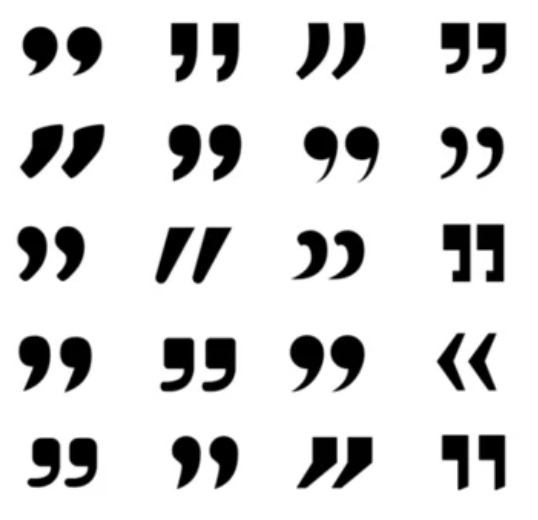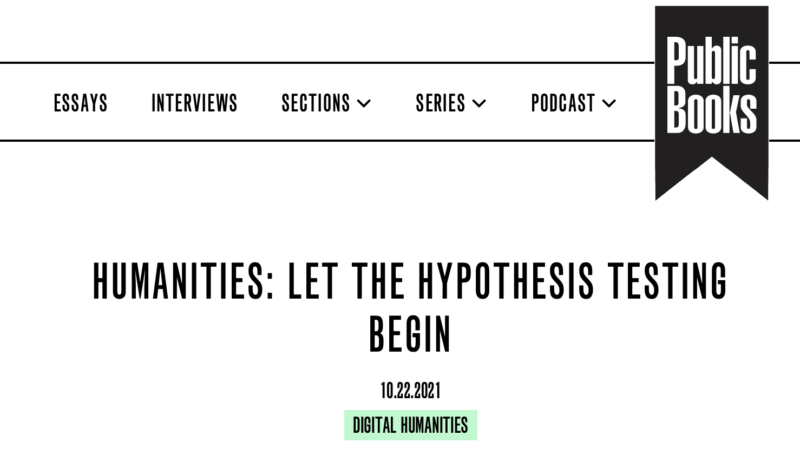Let the hypothesis testing begin
We believe that a turn toward hypothesis testing will help us become more aware of exactly what we are doing and why we are doing it.
I have a new piece out with Matt Erlin in Public Books. In it we describe why we think the idea of hypothesis testing will be so important for the future of research in the humanities. As we describe in the piece, we think hypothesis testing is valuable for the following three reasons:
- it makes research decisions more transparent;
- it foregrounds what we don’t know as much as what we do know, allowing us to embrace uncertainty;
- it pushes us towards consensus-based forms of knowledge rather than the agonistic model of critical response.
We are well aware of the problems that surround hypothesis testing in other fields (conventionally known as the replication crisis). But the solution to these problems is not less testing or less transparency, but more of both.
As we conclude our piece: “Let’s be honest. While it is tempting to think of the replication crisis as somebody else’s problem, the humanities have a replication crisis of monumental proportions. We have so many theories that have never been adequately tested or validated.” There is a tremendous research opportunity to take the rich tradition of theories developed in the humanities and start trying to test, validate, modify and reject them. Some will stand the test of time; some, like Pascale Casanova’s (whom we test in our piece), won’t. New theories will be developed, and old theories will be adapted. Whatever the case, our field will benefit.
It’s time to let the testing begin.

